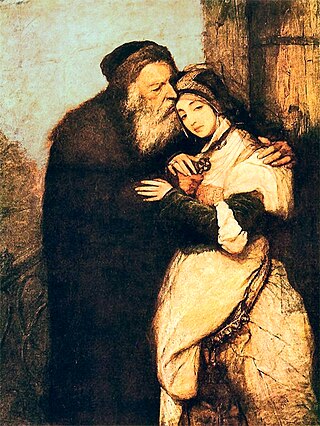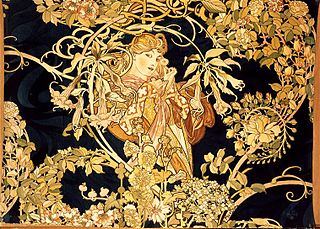Style is a manner of doing or presenting things and may refer to:
Polly is a given name, most often feminine, which originated as a variant of Molly. Polly may also be a short form of names such as Polina, Polona, Paula or Paulina.

Bonnie is a Scottish given name and is sometimes used as a descriptive reference, as in the Scottish folk song, My Bonnie Lies over the Ocean. It comes from the Scots language word "bonnie", or the French bonne (good). That is in turn derived from the Latin word "bonus" (good). The name can also be used as a pet form of Bonita.
Lauren may be a given name or surname. The name's meaning may be "laurel tree", "sweet of honor", or "wisdom". It is derived from the French name Laurence, a feminine version of Laurent, which is in turn derived from the Roman surname Laurentius.
Rubin is both a surname and a given name. Rubins is a Latvian-language name.It derives from the biblical name Reuben as a Jewish name.The choice is also influenced by the word rubin meaning "ruby," is some languages.
Meg is a feminine given name, often a short form of Margaret, Megan, Megumi (Japanese), etc. It may refer to:
Caitlin is a female given name of Irish origin. Historically, the Irish name Caitlín was anglicized as Cathleen or Kathleen. In the 1970s, however, non-Irish speakers began pronouncing the name according to English spelling rules as KAYT-lin, which led to many variations in spelling such as Caitlin, Catelynn, Caitlyn, Katlyn, Kaitlin, Kaitlyn, Katelyn and Katelynn.
Megan is a Welsh feminine given name, originally a diminutive form of Margaret. Margaret is from the Greek μαργαρίτης (margarítēs), Latin margarīta, "pearl". Megan is one of the most popular Welsh-language names for women in Wales and England, and is commonly truncated to Meg.
Ari is a given name in many languages and cultures, for both men and women. It also may be a nickname for a wide variety of unrelated names.
Acker comes from German or Old English, meaning "ploughed field"; it is related to or an alternate spelling of the word acre. Therefore, Ackermann means "ploughman". Ackerman is also a common Ashkenazi Jewish surname of Yiddish origin with the same meaning. The Ashkenazi surname Ackerman sometimes refers to the town of Akkerman in Bessarabia, south-west of Odessa.

Jessica is a female given name.

Rachel, meaning "ewe", is a feminine given name of Hebrew origin, popularized by the biblical figure Rachel, the wife of Israelite patriarch Jacob.

Bridget is an Irish female name derived from the Gaelic noun brígh, meaning "power, strength, vigor, virtue". An alternate meaning of the name is "exalted one". Its popularity, especially in Ireland, is largely related to the popularity of Saint Brigid of Kildare, who was so popular in Ireland she was known as "Mary of the Gael". This saint took on many of the characteristics of the early Celtic goddess Brigid, who was the goddess of agriculture and healing and possibly also of poetry and fire. One of her epithets was "Brigid of the Holy Fire". In German and Scandinavian countries, the popularity of the name spread due to Saint Bridget of Sweden.

Jennifer, also spelled Jenifer or Jenefer, is a feminine given name, the Cornish form of Guinevere, that became popular in the English-speaking world in the 20th century.
Molly is a diminutive of the feminine name Mary. It may less commonly be used as a diminutive for feminine names that begin with M, such as Margaret, Martha, Martina or Melinda.

Daisy is a feminine given name. The flower name comes from the Old English word dægeseage, meaning "day's eye". The name Daisy is therefore ultimately derived from this source. Daisy is also a nickname for Margaret because Marguerite, the French version of the latter name, is also a French name for the oxeye daisy.
Events from the year 1972 in the United States.
Heidi is a Germanic feminine given name. It became an internationally popular first name as a direct result of the Swiss children's book, Heidi. It can sometimes be an affectionate diminutive of the name Adelheid, which means "nobility" or, more loosely, "of noble birth". The name began to be used in the English-speaking world shortly after the 1937 Shirley Temple movie adaptation of the novel. In German-speaking countries, Heidi is also used as a diminutive for other names, such as Heidrun, Heidelinde, and Heidemarie.
Nat is a gender-neutral(female or male) given name, a nickname and a surname.
Tracy, as a British personal name, was originally adopted from Norman surnames such as those of the family de Tracy or de Trasci from Tracy-Bocage in Normandy, France. Derived from the Gaulish male name Draccios, or Latin Thracius, and the well-identified Celtic suffix -āko, such Norman surnames themselves sprung from several Tracy place-names in France.





